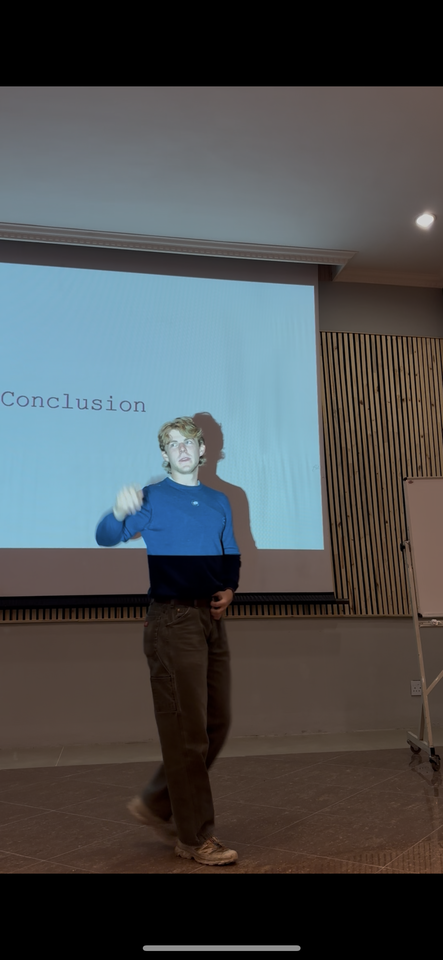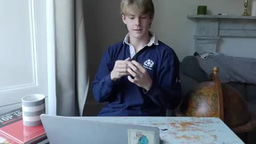LiA Log - Week 5 - Inspiring Leadership In Action

Week 5 Log – Johannesburg
Week 5 was my final week at REPSSI, and it was a fitting conclusion to my time there, with two main focuses that provided both personal growth and a deeper understanding of how the organisation plans to move forward. The week revolved around young leadership training and contributing to REPSSI’s 2026 strategy document. Both tasks were rich with learning and allowed me to engage in the hands-on work that shapes the future direction of REPSSI.
Young Leadership Training
The first major activity of the week was a two-day young leadership training programme. This workshop brought together children from schools in Diepsloot and the CBD, who had expressed an interest in becoming leaders in their schools and broader communities. The goal was to equip them with the skills and knowledge needed to start their leadership journeys and to help them understand how they could make a positive impact in their communities.
The workshop was structured to encourage active participation and presentation, with the emphasis on engaging the children in activities that would foster their leadership potential. I was tasked with presenting the section on multiple intelligences, a concept developed by Howard Gardner, which outlines seven different types of intelligence. The aim of this section was twofold:
-
To reinforce the message that all of the children in the room are intelligent and valuable in their own unique ways.
-
To help them understand that, as leaders, they need to recognise and appreciate the diverse strengths of the people they are leading.
In presenting the seven types of intelligence (linguistic, logical-mathematical, spatial, bodily-kinesthetic, musical, interpersonal, and intrapersonal), I aimed to make sure the children felt validated in their existing strengths, while also encouraging them to develop a broader understanding of intelligence beyond the traditional academic model.
The feedback and engagement from the children were fantastic. It was clear that they appreciated being recognised for their potential, and seeing their reactions made it clear just how important it is to approach leadership with an inclusive mindset. The success of the programme would ultimately be measured by how effective these young leaders are in initiating and leading a kids' club at their school. This was a tangible outcome that would allow us to assess whether the training had made a meaningful impact on their ability to lead and inspire others.
This workshop was incredibly rewarding for me, as it reinforced the idea that leadership isn’t just about individual success but about empowering others. By the end of the programme, I could see how the children were inspired to take what they had learned and apply it to make a real difference in their communities. It was uplifting to witness their growing sense of self-worth and the enthusiasm they brought to the idea of leadership.
Contributing to REPSSI’s 2026 Strategy Document
The second major task of the week was contributing to the formulation of REPSSI’s 2026 strategy document. By this stage, the basic framework for the document was already in place, but our job was to analyse the language, refine the goals, and ensure that the approach was as effective and inclusive as possible.
I was involved in a series of sessions where we looked at how the strategy could be made more child-centred. One key insight that emerged was the need to target low-hanging fruits—things that could be achieved in the short-term that would demonstrate immediate success and build momentum. This would create a sense of progress and positivity, making it easier to push for more long-term goals in the future.
Another important shift we discussed was how to make the strategy more inclusive by consulting the children who are directly affected by REPSSI’s programmes. Rather than assuming what they need or want, it became clear that asking the children what they thought should be in the strategy was crucial for ensuring the organisation’s efforts were aligned with their actual needs.
I was thrilled to be in the room where decisions were being made about the future of REPSSI. It felt meaningful to contribute to something that will shape the direction of the organisation and affect countless children in the coming years. By the end of the sessions, we had refined the document to include a stronger focus on empowerment, consultation, and inclusivity, ensuring that the children who REPSSI works with are at the heart of everything the organisation does.
Key Takeaways
-
Empowering Young Leaders
The young leadership training underscored the importance of empowering young people and recognising their potential. By acknowledging that leadership comes in many forms and that every child has their own strengths, we can cultivate future leaders who are not only capable but also inclusive and supportive of those around them. -
The Value of Active Participation
Leadership training must be engaging and participatory, rather than passive. Active involvement through discussions, presentations, and hands-on activities makes learning more impactful. This approach creates a sense of ownership among participants, encouraging them to apply what they’ve learned in real-world settings. -
Inclusivity in Leadership Development
The concept of multiple intelligences is crucial in leadership development. Recognising that everyone has different strengths allows us to be more inclusive and ensure that all voices are heard. Leaders who recognise and value these differences are more likely to foster environments where everyone can thrive. -
Child-Centered Approaches
REPSSI’s 2026 strategy highlighted the importance of making children the focal point of the organisation’s work. By consulting with children directly and understanding their needs, REPSSI can ensure that its efforts are not just top-down, but are genuinely aligned with what children want and need for their own growth and development. -
The Importance of Setting Achievable Goals
Focusing on low-hanging fruits early on is an effective strategy for building momentum and achieving quick wins. These early successes are crucial for maintaining motivation and enthusiasm, both within the organisation and among the children who are directly affected by the work. -
A Holistic Approach to Strategy
Contributing to the strategy document reinforced how important it is to have a holistic approach when planning for the future. Ensuring that the organisation’s goals are not just achievable but also reflect the voices of those it aims to serve will lead to a more sustainable and impactful strategy.



Please sign in
If you are a registered user on Laidlaw Scholars Network, please sign in